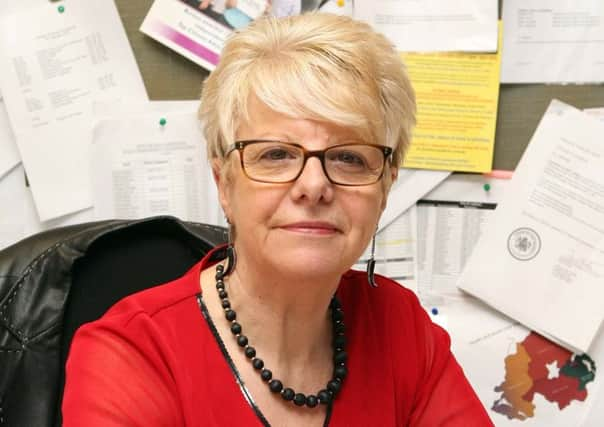Advice: Do I have to pay tax in retirement?


When you reach State Pension age you no longer pay National Insurance contributions, but you don’t automatically stop paying Income Tax. If your taxable income - including your State Pension - is more than your tax-free allowances you’ll still have to pay tax.
• How do I know if I should be paying tax?
HM Revenue & Customs (HMRC) may have already contacted you to help you work out if you should be paying tax at State Pension age. If you were born before 6 April 1948, you may be entitled to Age-related Personal Allowance. If you wish to claim this allowance, please complete a P161 form. You can download from the HMRC website and complete the form - Income Tax: Age-related Personal Allowance (P161) (GOV.UK website)
• Working out if you should be paying tax
Advertisement
Hide AdAdvertisement
Hide AdTo work out if you are a taxpayer follow these three steps: add up all your taxable income; work out your tax-free allowances; take your tax-free allowances away from your taxable income.
If your taxable income is more than your tax-free allowances, you’ll have to pay tax and must contact HMRC. If your tax-free allowances are the same as or more than your taxable income, no action is necessary. If you think that you shouldn’t be paying tax but are, you’ll be able to claim a refund.
• Step one - add up your taxable income
Some income is taxable and some is non-taxable. You compare only your taxable income with your tax-free allowances in a tax year (6 April to 5 April) to see if you are a taxpayer.
Your taxable income includes:
all pension income (including State Pension)
employment/self-employment income if you keep working
almost all bank and building society interest (the ‘gross’ amount, before tax is taken off)
dividends (income from shares)
Advertisement
Hide AdAdvertisement
Hide Adincome from property after expenses but not the first £4,250 if you rent out a furnished room in your house
income from abroad (overseas pensions have a 10 per cent deduction so you are only taxed on 90 per cent of the total amount)
some benefits, including Carer’s Allowance, Employment and Support Allowance and, in some cases, Incapacity Benefit
Non-taxable income
Non-taxable income includes:
Pension Credit
Working Tax Credit or Child Tax Credit
income or interest from an Individual Savings Account (ISA), a Personal Equity Plan (PEP), or a Tax Exempt Special Savings Account (TESSA)
interest from National Savings Certificates
interest and bonuses from a Save As You Earn (SAYE) scheme
Premium Bond and National Lottery winnings
Advertisement
Hide AdAdvertisement
Hide Adcertain benefits, including Cold Weather Payments, Attendance Allowance, Income Support and Disability Living Allowance
lump sum pension payments (but not lump sums from deferring a State Pension or foreign pensions)
• Step two – add up your tax-free allowances
Your tax-free allowances are income amounts you earn without paying tax. The Personal Allowance and the Blind Person’s Allowance are tax free amounts.
Personal allowance: Most people have a Personal Allowance - an annual amount of tax-free income. The rate of Income Tax you pay depends on how much taxable income you earn above your allowance.
Allowance 2014-2015:
Advertisement
Hide AdAdvertisement
Hide AdPersonal Allowance if born on or after 6 April 1948 - £10,000
Personal Allowance if born between 6 April 1938 and 5 April 1948 - £10,500
Personal Allowance if born before 6 April 1938 - £10,660
Blind person’s allowance:
If you’re registered as blind you can claim Blind Person’s Allowance. This is an amount of income you can get without paying tax. For 2014-2015 the allowance is £2,230. To claim this in Northern Ireland you must be unable to perform any work for which eyesight is essential.
• Step three – work out if you’re a taxpayer
Take your tax-free allowances away from your taxable income. If there’s anything left you count as a taxpayer and you must contact HMRC if you’re not already paying tax. If there’s nothing left you shouldn’t be paying tax and may be due a refund.
Advertisement
Hide AdAdvertisement
Hide AdIf you were born before 6 April 1935, remember that you may qualify for other allowances such as Married Couple’s Allowance and Maintenance Payments Relief that can reduce your tax bill. In some cases this may mean that you have nothing to pay at all.
If you already pay tax through PAYE, HMRC may be able to collect any extra tax you owe including that on your State Pension through PAYE if any of the following apply:
you’re getting a personal (including retirement annuity) or company pension
you work part time
Otherwise they’ll ask you to complete Tax Review form P810 to report your income or to pay your tax through Self-Assessment.
How to contact HMRC:
Advertisement
Hide AdAdvertisement
Hide AdTo contact HMRC phone 0300 200 3300. You will need to tell HMRC your National Insurance number. More information about tax allowances is available on the GOV.UK website at www.gov.uk.
Getting help and advice:
If you are aged 60 or over and on a low income and have a problem with your tax allowances which you can’t sort out with HMRC, you may wish to contact TaxHelp for Older People (TOP). Their Helpline number is 0845 601 3321 (Mon-Fri 9am-5pm) or email www.taxvol.org.uk. TOP may be able to arrange a home visit if your problem is better sorted out by a face-to-face meeting.
• Get free, confidential and independent advice from your nearest Citizens Advice Bureau or log on to www.adviceguide.org.uk
Call Newtownabbey CAB, Dunanney Centre, Rathcoole on 028 9085 2271 or email [email protected]